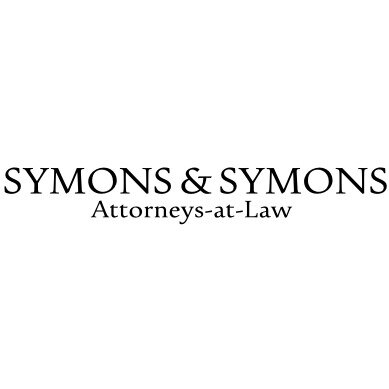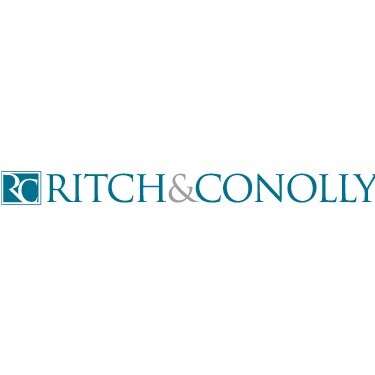Best Private Equity Lawyers in Cayman Islands
Share your needs with us, get contacted by law firms.
Free. Takes 2 min.
Or refine your search by selecting a city:
List of the best lawyers in Cayman Islands
About Private Equity Law in Cayman Islands
The Cayman Islands is recognized as a leading international financial center for private equity investment. Many global investors, fund managers, and institutions choose the Cayman Islands to structure and domicile private equity funds due to its stable political environment, attractive regulatory regime, tax neutrality, and established legal framework. Private Equity in the Cayman Islands typically involves investment in private companies through closed-ended funds, often structured as exempted limited partnerships, limited liability companies, or exempted companies.
Why You May Need a Lawyer
Engaging a lawyer with expertise in Cayman Islands private equity law is crucial in several situations. You may need legal advice if you are:
- Setting up a private equity fund in the Cayman Islands
- Structuring cross-border investments or fund transactions
- Navigating regulatory requirements and compliance obligations
- Dissolving or restructuring funds and entities
- Advising on disputes between limited partners and general partners
- Reviewing fund documentation for governance, investor rights, and reporting
- Conducting legal due diligence for acquisitions or portfolio investments
- Understanding Cayman Islands tax and reporting considerations
Legal complexities can arise at any stage of the investment process, so professional legal guidance is recommended to safeguard your interests.
Local Laws Overview
Several key laws and regulations govern private equity activity in the Cayman Islands. Some of the most relevant legislation includes:
- Exempted Limited Partnership Law (ELPL) - This law allows for flexible and internationally accepted limited partnership structures, which are commonly used for private equity funds.
- Companies Act - Governs exempted companies and limited liability companies, which may also be used for fund or portfolio company structures.
- Limited Liability Companies Act (LLC Act) - Introduces the Cayman LLC, a hybrid entity blending features of companies and partnerships.
- Mutual Funds Act - Regulates open-ended funds, but certain closed-ended funds may also fall under its regime in specific cases.
- Private Funds Act - Imposes registration and operational requirements on closed-ended private funds, including private equity funds, around audits, valuation, and custody.
- Anti-Money Laundering Regulations - Require robust compliance frameworks for all financial businesses, including KYC (Know Your Customer), CFT (Counter-Financing of Terrorism), and ongoing monitoring.
- Beneficial Ownership Regime - Certain entities must maintain a beneficial ownership register, subject to specific exemptions commonly applicable to investment funds.
These laws ensure effective regulation while offering flexibility and privacy for fund organizers and investors.
Frequently Asked Questions
What makes the Cayman Islands attractive for private equity funds?
The Cayman Islands offers a tax-neutral regime, modern statutory framework, political stability, efficient regulatory processes, and an experienced financial services sector, making it an ideal jurisdiction for private equity funds.
Do private equity funds in the Cayman Islands have to be registered?
Most closed-ended private equity funds that fall within the definition of "private fund" under the Private Funds Act must be registered with the Cayman Islands Monetary Authority (CIMA).
What is the most common structure for private equity funds in the Cayman Islands?
The Exempted Limited Partnership (ELP) is the most popular structure due to its flexibility regarding governance, capital commitments, and profit-sharing arrangements.
How are private equity funds taxed in the Cayman Islands?
The Cayman Islands does not impose direct taxes on income, capital gains, or corporate profits. Most funds can apply for a tax exemption certificate for additional certainty.
Are there regulations for anti-money laundering applicable to private equity?
Yes. Private equity funds and related entities must comply with comprehensive anti-money laundering and counter terrorism financing regulations, including KYC requirements and ongoing monitoring.
Can non-residents set up funds or invest through Cayman structures?
Yes. There are no restrictions on foreign ownership or investment, and the legal framework is designed to accommodate non-resident investors and managers.
Is it necessary to have a physical office or director in the Cayman Islands?
While there is no requirement to have a physical office, certain entities must appoint a local registered office provider. Private funds must also appoint a local auditor approved by CIMA.
Are private equity funds subject to local audits?
Yes. Private funds registered under the Private Funds Act must have their financial statements audited annually by a CIMA-approved auditor in the Cayman Islands.
How quickly can a private equity fund be set up in the Cayman Islands?
With the assistance of experienced legal counsel, formation and registration can usually be completed within a matter of weeks, depending on the complexity and completeness of required documentation.
What are the governance requirements for private equity funds?
Governance requirements depend on the fund structure but generally include provisions for fund management, removal or replacement of the general partner, reporting to investors, conflict resolution, and compliance with the local legal regime.
Additional Resources
For more information or assistance, the following organizations and resources can be helpful:
- Cayman Islands Monetary Authority (CIMA) - The key financial regulator
- Cayman Islands Government General Registry - Handles company and partnership registrations
- Cayman Islands Department for International Tax Cooperation - Manages tax transparency and compliance matters
- Cayman Islands Law Society - For referrals to qualified legal professionals
- Private equity and investment fund industry associations based in the Cayman Islands
Next Steps
If you need legal assistance related to private equity in the Cayman Islands, consider the following actions:
- Identify your specific needs, such as fund formation, compliance, or transactional advice
- Contact a Cayman Islands law firm or lawyer specializing in private equity funds and investment structures
- Gather all necessary documentation and information about your proposed activities
- Seek an initial consultation to discuss your objectives and potential legal issues
- Work closely with your legal advisor throughout the process to ensure compliance and to structure your private equity investment for optimal results
Choosing the right legal partner can help prevent costly mistakes and position your private equity fund or investment for long-term success.
Lawzana helps you find the best lawyers and law firms in Cayman Islands through a curated and pre-screened list of qualified legal professionals. Our platform offers rankings and detailed profiles of attorneys and law firms, allowing you to compare based on practice areas, including Private Equity, experience, and client feedback.
Each profile includes a description of the firm's areas of practice, client reviews, team members and partners, year of establishment, spoken languages, office locations, contact information, social media presence, and any published articles or resources. Most firms on our platform speak English and are experienced in both local and international legal matters.
Get a quote from top-rated law firms in Cayman Islands — quickly, securely, and without unnecessary hassle.
Disclaimer:
The information provided on this page is for general informational purposes only and does not constitute legal advice. While we strive to ensure the accuracy and relevance of the content, legal information may change over time, and interpretations of the law can vary. You should always consult with a qualified legal professional for advice specific to your situation.
We disclaim all liability for actions taken or not taken based on the content of this page. If you believe any information is incorrect or outdated, please contact us, and we will review and update it where appropriate.
Browse private equity law firms by city in Cayman Islands
Refine your search by selecting a city.

















